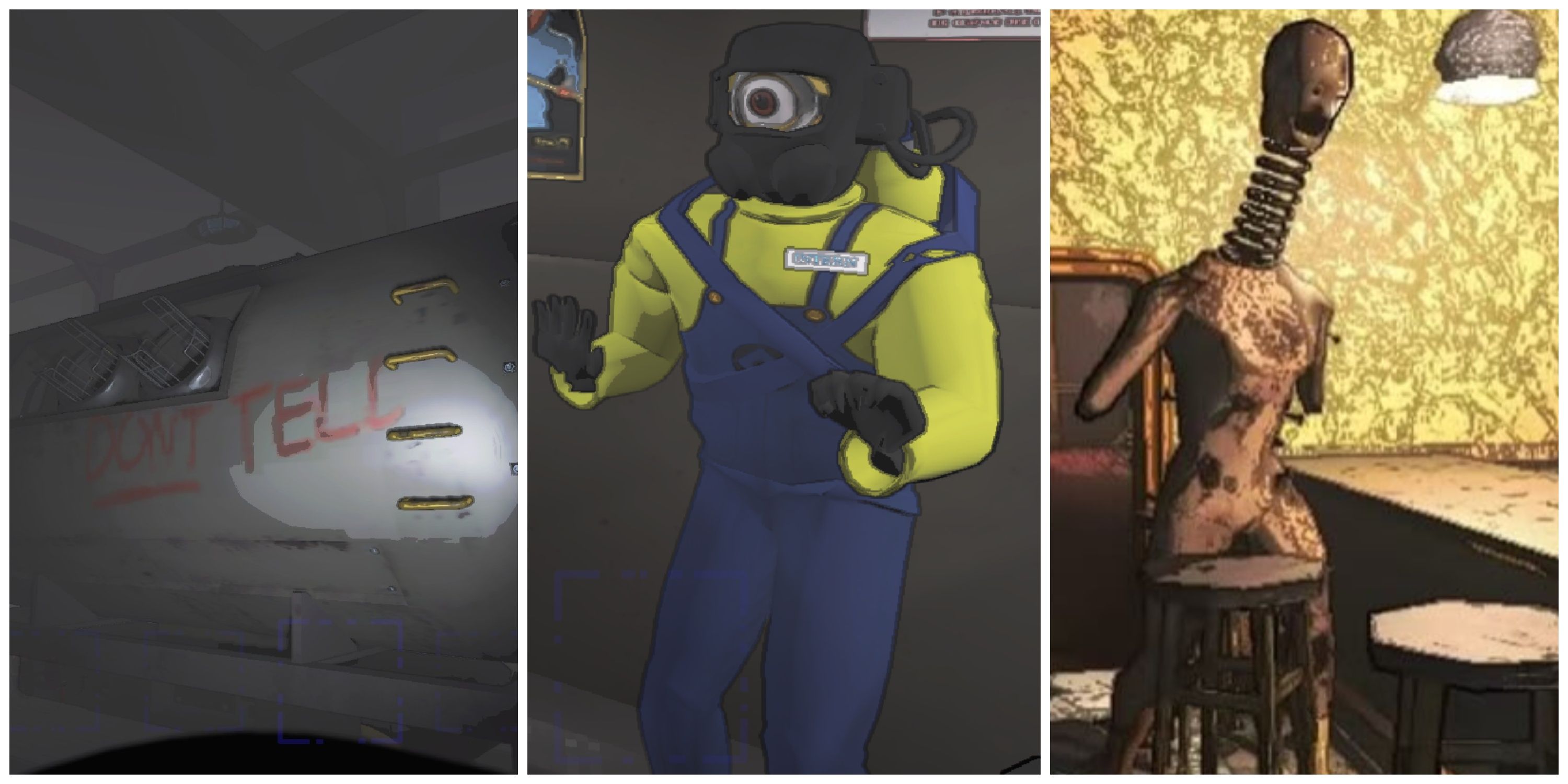Lethal Company Missions: A Deep Dive Into The World's Most Dangerous Operations
When it comes to lethal company missions, the stakes are high and the risks are real. Imagine being part of a team tasked with completing missions that could either make history or end in disaster. These aren’t your average corporate projects—these are life-and-death situations that require precision, strategy, and an unshakable will to succeed. Whether it’s extracting hostages from war zones, dismantling terrorist networks, or securing critical assets in hostile territories, lethal company missions demand the best of the best.
But what exactly defines a lethal company mission? Is it all about the adrenaline rush, or is there more to it? The truth is, these missions are a delicate balance of strategy, technology, and human ingenuity. They’re not just about taking down the bad guys; they’re about protecting lives, preserving national security, and ensuring global stability. In this article, we’ll explore the ins and outs of these high-stakes operations, uncovering the stories, tactics, and players behind some of the most daring missions in history.
So, buckle up because we’re about to dive deep into the world of lethal company missions. From the teams that execute them to the tech that makes them possible, this article will give you a front-row seat to the action. Let’s get started!
- Savannah Demers Nude Unveiling The Truth Behind The Controversy
- Kirstentoosweet Leaked Onlyfans The Untold Story Behind The Viral Sensation
What Are Lethal Company Missions?
Lethal company missions refer to high-risk operations conducted by specialized teams or organizations. These missions often involve scenarios where failure is not an option. Think about it—these teams are usually called in when things have escalated to a point where only the most skilled operatives can handle the situation. Whether it’s rescuing hostages, neutralizing threats, or securing sensitive information, lethal company missions are all about precision and execution.
Key Characteristics of Lethal Company Missions
So, what makes a mission "lethal"? Here are a few key characteristics:
- High-Risk Environments: These missions often take place in war zones, hostile territories, or areas with extreme weather conditions.
- Time-Sensitive Objectives: The clock is always ticking, and every second counts when lives are on the line.
- Specialized Teams: Only the most skilled operatives are chosen for these missions. They undergo rigorous training and have access to cutting-edge technology.
- Unpredictable Outcomes: Even with the best planning, things can go sideways. That’s why adaptability and quick thinking are crucial.
The Teams Behind Lethal Company Missions
Behind every successful lethal company mission is a team of highly trained professionals. These aren’t your average soldiers or corporate employees. We’re talking about elite operatives who have spent years honing their skills and preparing for the worst-case scenarios. Let’s take a closer look at the types of teams involved in these missions.
- Zulma Aponte Shimkus A Rising Star In The Spotlight
- Gina Wap The Queen Of Urban Rhythms And Bold Lyrics
Special Forces Units
Special forces units are often at the forefront of lethal company missions. These teams are composed of soldiers who have undergone intense physical and mental training. They’re experts in everything from hand-to-hand combat to advanced surveillance techniques. Some of the most famous special forces units include the Navy SEALs, Delta Force, and SAS.
Private Military Companies (PMCs)
In recent years, private military companies (PMCs) have become increasingly involved in lethal company missions. These organizations offer a range of services, from security to intelligence gathering. While PMCs operate outside the traditional military structure, they often work closely with government agencies to execute high-stakes operations.
The Technology Driving Lethal Company Missions
Technology plays a crucial role in the success of lethal company missions. From drones to encrypted communication systems, operatives have access to tools that would have seemed like science fiction just a few decades ago. Let’s explore some of the tech that makes these missions possible.
Drones and Unmanned Aerial Vehicles (UAVs)
Drones have revolutionized the way lethal company missions are conducted. These unmanned aerial vehicles provide real-time surveillance and can be equipped with weapons for precision strikes. They allow operatives to gather intelligence without putting themselves in harm’s way.
Encryption and Cybersecurity
In today’s digital age, cybersecurity is more important than ever. Lethal company missions often involve sensitive information that needs to be protected at all costs. Encryption technologies ensure that communications remain secure, even in the most hostile environments.
The Psychology of Lethal Company Missions
Executing a lethal company mission requires more than just physical strength and technical expertise. It also demands a strong mental game. Operatives must be able to stay calm under pressure, make split-second decisions, and adapt to rapidly changing situations. Let’s delve into the psychological aspects of these missions.
Stress Management
Stress is a constant companion for those involved in lethal company missions. The pressure to succeed, combined with the potential for life-threatening situations, can take a toll on even the most seasoned operatives. That’s why stress management techniques, such as mindfulness and meditation, are often incorporated into training programs.
Team Dynamics
Effective communication and trust are essential for the success of lethal company missions. Teams must work seamlessly together, anticipating each other’s moves and supporting one another in the face of adversity. Building strong team dynamics is a key focus during training and preparation.
Historical Lethal Company Missions
To truly understand the impact of lethal company missions, it’s important to look at some of the most famous operations in history. These missions not only shaped the course of events but also set the standard for future operations.
Operation Neptune Spear
One of the most well-known lethal company missions is Operation Neptune Spear, which resulted in the death of Osama bin Laden. This operation involved a team of Navy SEALs who executed a daring raid on a compound in Pakistan. The mission was a testament to the skill and determination of the operatives involved.
Entebbe Airport Raid
Another iconic mission is the Entebbe Airport Raid, where Israeli commandos successfully rescued hostages held by terrorists in Uganda. This operation showcased the importance of meticulous planning and precise execution in lethal company missions.
The Ethical Implications of Lethal Company Missions
While lethal company missions are often necessary, they also raise important ethical questions. Is it ever justified to take a life in the name of national security? How do we balance the need for safety with the potential for collateral damage? These are complex issues that require careful consideration.
Accountability and Transparency
Accountability and transparency are crucial when it comes to lethal company missions. Governments and organizations must be willing to answer for their actions and ensure that operations are conducted in accordance with international laws and standards.
Humanitarian Concerns
There’s also the issue of humanitarian concerns. While the primary goal of these missions is to protect lives, there’s always the risk of unintended consequences. It’s essential to weigh the potential benefits against the potential harm before launching any operation.
Preparing for Lethal Company Missions
Training is a vital component of preparing for lethal company missions. Operatives must be equipped with the skills and knowledge needed to succeed in the most challenging environments. Let’s take a look at some of the key elements of this training.
Physical Fitness
Physical fitness is a top priority for those involved in lethal company missions. Operatives must be in peak condition to endure the rigors of these operations. Training programs often include intense workouts, endurance tests, and survival exercises.
Tactical Training
Tactical training is another critical aspect of preparation. Operatives learn how to use weapons, navigate complex terrain, and execute various mission scenarios. This training ensures that they’re ready for anything that comes their way.
Conclusion
Lethal company missions are a fascinating and complex aspect of modern warfare. From the teams that execute them to the technology that supports them, every element plays a crucial role in ensuring success. While these missions are often shrouded in secrecy, they have a profound impact on global security and stability.
As we’ve explored in this article, lethal company missions require a unique combination of skills, strategy, and technology. They’re not for the faint of heart, but for those who rise to the challenge, the rewards can be immense. So, the next time you hear about a daring operation in the news, remember the incredible effort and dedication that went into making it a success.
Now, it’s your turn. Do you have any questions or thoughts about lethal company missions? Leave a comment below and let’s continue the conversation. And don’t forget to share this article with your friends and family. Together, let’s spread the word about the incredible world of lethal company missions!
Table of Contents
- What Are Lethal Company Missions?
- Key Characteristics of Lethal Company Missions
- The Teams Behind Lethal Company Missions
- Special Forces Units
- Private Military Companies (PMCs)
- The Technology Driving Lethal Company Missions
- Drones and Unmanned Aerial Vehicles (UAVs)
- Encryption and Cybersecurity
- The Psychology of Lethal Company Missions
- Stress Management
- Team Dynamics
- Katie Sigmondleaks The Inside Story You Need To Know
- Indian Mms Videos The Ultimate Guide To Understanding And Exploring

Best Lethal Company Mods

Discuss Everything About Lethal Company Wiki Fandom

CategoryEntities Lethal Company Wiki Fandom